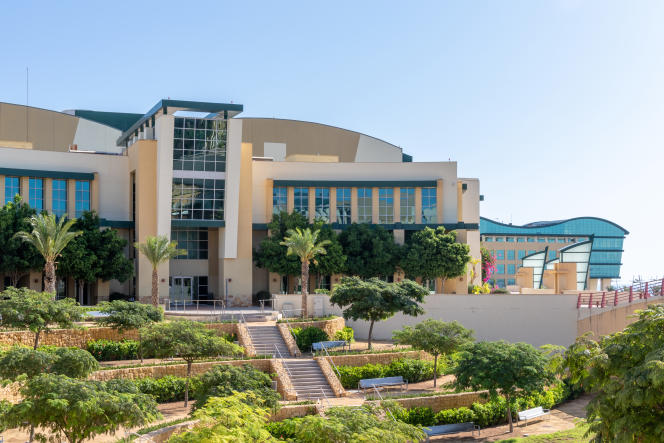Ten years have passed since the closure of the Ciudad de la Luz, a huge 300-hectare cinema complex inaugurated in 2005 in Alicante, Spain. Forced to close its doors in 2012, for a period of fifteen years, following a conviction by the European Commission for “unfair competition” and illegal “state aid”, it should reopen its doors on 1er July. Five years ahead.
“A horizon of hope opens before us”, blows Antonio Rodes, the director of the Society of Thematic Projects of the Valencian Community (SPTCV), the regional public body that owns the studios. Installed in the offices with large bluish bay windows of the cinema complex which, located on the heights of Alicante, overlooks the sea and is surrounded by arid mountains worthy of the spaghetti westerns shot in the 1960s in Spain, he continues: “We have the best film studios in the European Union [UE], but they were never used as they should have been. Given the current demand, much higher than that which existed ten years ago thanks to the boom in audiovisual content platforms, we are convinced that we are finally giving them the use they deserve. »
For the time being, far from their cinematographic vocation, three of the six huge sets have been hosting a reception center for Ukrainian refugees since March. In the old workshops are stored several giant sculptures of fallas, the great popular festivals of Valencia. Further on, dozens of hair salon seats, inherited from the time when actors still frequented the premises, are stored awaiting a second life. The closed Kodak studios have become obsolete.
The breaches in the aquatic basin, 100 meters by 80, where the Spanish director Juan Antonio Bayona reconstructed a tsunami in The Impossiblefilmed in 2010 with Naomi Watts and Ewan McGregor, betray the passage of time. And rabbits run around the two 4,000 square meter outdoor filming areas, where was filmed Asterix at the Olympicsreleased in 2008, the film that unleashed the storm.
Descent into hell
It was because they had applied to host the filming of the comic book adaptation by Uderzo and Goscinny, and had not been chosen, that the British studios of Pinewood dug into the accounts of the Ciudad de la Luz and lodged a complaint with the Directorate General for Competition for the aid received from the region which enabled it to lower its prices. What followed was a descent into hell. The public company, indebted to more than 200 million euros, had to close in 2012, then be liquidated, and its assets were sold to the region in 2017 on the condition of giving up all commercial activity on the site.
You have 68.48% of this article left to read. The following is for subscribers only.
We wish to give thanks to the author of this short article for this amazing material
In Alicante, the film studios of the Ciudad de la Luz dream of being the new European Hollywood
Explore our social media profiles along with other related pageshttps://nimblespirit.com/related-pages/

